About the Editor
Editor-in-Chief
 Andras Kis, PhD
Andras Kis, PhD
Inst. of Electrical Engineering and Materials Science
École Polytechnique Fédérale de Lausanne
Lausanne, Switzerland
Professor Andras Kis received his Master's degree from the University of Zagreb, Croatia, and his PhD in Physics from EPFL in 2003. He worked as a postdoctoral researcher at the University of California, Berkeley from 2004. In 2008 he established a research group at EPFL dedicated to nanoelectronics based on two-dimensional semiconductors such as monolayers of transition metal dichalcogenides. His group demonstrated the first transistor based on a 2D semiconductor (monolayer MoS2) which had a high on/off ratio.
Managing Editor
 Jialiang Cai, PhD
Jialiang Cai, PhD
Jialiang received a B.Sc. in Ecology from East China Normal University (China) and a M.Sc. in Environmental Sciences from Peking University (China). He earned his Ph.D. in Hydrogeology from Freie Universität Berlin (Germany). Jialiang continued to work first as a Postdoctoral Researcher and later as a PI (Visiting Research Fellow) for 7 years at Aalto University (Finland). His research focused on understanding the exposure and resilience of society to nature resources risk as well as the synergies and tradeoffs between economic competitiveness, social welfare, and environmental sustainability for accessing transformative pathways towards achieving the 2030 Agenda in a warmer world. Prior to joining the npj series in May 2023, Jialiang served as a Senior Editorial Development Specialist at earth science, astronomy and space sciences, physics, and chemistry journals at Frontiers. He is based in the Shanghai office.
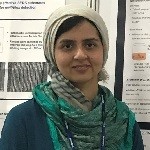 Basma Qazi-Chaudhry, PhD
Basma Qazi-Chaudhry, PhD
Basma joined the npjs in August 2021 after completion of her PhD at King’s College London. Her doctoral research was at the interface of chemistry, physics and bio imaging developing nanoparticle probes as biological imaging contrast agents for vibrational micro-spectroscopy. Prior to that, she received her master’s degree in micro and nanotechnologies for integrated systems and her bachelor’s in Electrical and Electronics Engineering from EPFL, Switzerland. Basma is based in the London office and is currently on parental leave.
Associate Editors
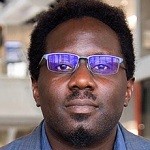 Deji Akinwande, PhD
Deji Akinwande, PhD
Associate Professor, Electrical and Computer Engineering
University of Texas at Austin
TX, USA
Professor Deji Akinwande received his PhD degree in Electrical Engineering from Stanford University in 2009, where he conducted research on the synthesis, device physics and circuit applications of carbon nanotubes and graphene. His Master's research in Applied Physics at Case Western Reserve University pioneered the design and development of near-field microwave probe tips for nondestructive imaging and studies of materials.
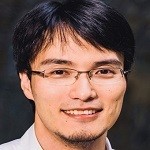 Goki Eda, PhD
Goki Eda, PhD
Department of Physics and Department of Chemistry
National University of Singapore
Singapore, Singapore
Professor Goki Eda holds joint appointments in the Centre for Advanced 2D Materials and the Solar Energy Research Institute of Singapore at National University of Singapore. He received his BA in Physics from the International Christian University in Tokyo, MS in Materials Science and Engineering from Worcester Polytechnic Institute and PhD in the same discipline from Rutgers University in 2009. He has completed extensive work on solution-processing and electronic property characterization of a variety of 2D materials such as graphene oxide and MoS2. His current research is on charge and exciton dynamics in van der Waals solids.
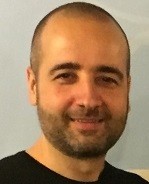 Gianluca Fiori, PhD
Gianluca Fiori, PhD
Prof. of Electronics
University of Pisa
Pisa, Italy
Prof. Fiori’s main interests include the modelling, and the electrical and noise characterization of CMOS nanoscale devices, as well as the design of innovative devices based on new architectures and new materials. He has renowned expertise in assessing device performance against Industry requirements through the exploitation of purposely-devised multi-scale, multi-physics in-house atomistic simulators. Through an ERC grant, Prof. Fiori has recently embarked on an experimental activity on printed electronics, with the aim of obtaining fully printed integrated circuits on flexible substrates as paper.
 Thomas Heine, PhD
Thomas Heine, PhD
Prof. of Theoretical Chemistry
Technische Universität Dresden
Dresden, Germany
In addition to his appointment at Technische Universität Dresden, Professor Thomas Heine is also Adjunct Professor of Theoretical Physics at Jacobs University Bremen. In 1995 he received his Diploma (Physics) at TU Clausthal, and in 1999 his PhD (Physics) at TU Dresden. After postdoctoral stages at University of Bologna and University of Geneva, he obtained his venia legendi in Physical Chemistry at TU Dresden in 2006. In 2008 he started his research group as Associate Professor at Jacobs University Bremen, promoted to Full Professor in 2011. In 2015 he accepted the Chair of Theoretical Chemistry at Leipzig University. His research focuses on the computational science of nanostructured materials, in particular of two-dimensional crystals and molecular frameworks.
 Deep Manoj Jariwala, PhD
Deep Manoj Jariwala, PhD
Department of Electrical and Systems Engineering
University of Pennsylvania
Philadelphia, PA, USA
My research interests lie broadly in the area of low-dimensional quantum materials, specifically 2D van der Waals layers for electronics, photonics, sensing and energy transduction. Our research group specializes in making and characterizing mixed-dimensional hetero-junctions and superlattices with a goal of understanding the charge and energy dynamics at the interfaces, tailoring dispersion of electrons, photons and phonons in artificial superlattices and identifying applications of these hetero-junctions and superlattices from low-power logic to memory devices as well as in photovoltaics, photodetectors, optical modulators and amplifiers.
 Ermin Malic, PhD
Ermin Malic, PhD
Philipps-University Marburg
Marburg, Germany
My research interests include microscopic modeling of optics, dynamics and transport phenomena in atomically thin semiconductors (transition metal dichalcogenides, graphene and related heterostructures).
 Valeria Nicolosi, PhD
Valeria Nicolosi, PhD
Professor of Nanomaterials and Advanced Microscopy, School of Chemistry, CRANN & AMBER
Trinity College
Dublin, Ireland
Professor Valeria Nicolosi is an expert in the field of processing of low-dimensional nanostructures and high-end electron microscopy. She received a BSc in Chemistry from the University of Catania in 2001 and a PhD in Physics in 2006 from Trinity College Dublin. In 2012 she became ERC Research Professor at the School of Chemistry, Trinity College Dublin, and principal investigator in CRANN nanoscience centre.
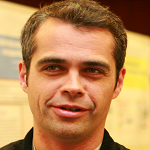 Luís Miguel Nunes Pereira, PhD
Luís Miguel Nunes Pereira, PhD
Associate Professor, Departamento de Ciência dos Materiais
FCT/UNL
Caparica, Portugal
Professor Luis Pereira received his Engineering degree in Materials Science in 2001 and PhD in 2008 from Universidade Nova de Lisboa. His PhD focused on polycrystalline silicon and high k dielectrics for TFT applications. He was involved in a team that demonstrated the first transistors made of oxides with paper as the dielectric. He is also a researcher at CENIMAT/I3N, with current research interests on the design and synthesis of 1D, 2D and 3D inorganic and hybrid nanostructures, chiral cellulose nanocomposites, functional micro and nanofibers and their integration on printed chromogenic, electronic and electrochemical devices.
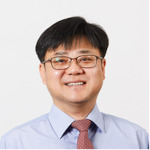 Hyeon Suk Shin, PhD
Hyeon Suk Shin, PhD
Director, the IBS center
Sungkyunkwan University(SKKU)
Seoul, Republic of Korea
Prof Shin is the director of the IBS center at SKKU. He received his PhD from Department of Chemistry at POSTECH in 2002. After working as a Postdoctoral Fellow at University of Cambridge, UK and subsequently as a Research Professor at POSTECH, he joined UNIST in 2008. His current research focuses on synthesis and physicochemical property of 2D materials, in particular, hexagonal boron nitride and transition metal dichalcogenides, and their amorphous structures.
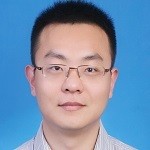 Xinran Wang, PhD
Xinran Wang, PhD
School of Electronic Science and Engineering
Nanjing University
Nanjing, China
Professor Xinran Wang is a Chang Jiang Professor and doctoral adviser at the School of Electronic Science and Engineering at Nanjing University. In 2010 he received his PhD in physics from Stanford University on the synthesis and electronic devices of graphene. His research interests include the growth, physical properties and device applications of two-dimensional materials. He developed the world's first high Ion/Ioff ratio graphene nanoribbon field-effect transistor. From 2010 to 2011, he was a postdoctoral researcher at Stanford University and at the University of Illinois at Urbana-Champaign. In 2011 he returned to Nanjing and started his own laboratory.
Editorial Board Members
Kaustav Banerjee, PhD, University of California, USA
Qiaoliang Bao, PhD, Monash University, Australia
Cinzia Casiraghi, PhD, University of Manchester, UK
Andres Castellanos-Gomez, PhD, Instituto de Ciencia de Materiales de Madrid, Consejo superior de Investigaciones Cientificas, Spain
Yang Chai, PhD, The Hong Kong Polytechnic University, Hong Kong, China
Jinwoo Cheon, PhD, Yonsei University, South Korea
Camilla Coletti, PhD, Istituto Italiano di Tecnologia, Italy
Xiangfeng Duan, PhD, University of California, USA
Georg Duesberg, PhD, Trinity College Dublin, Ireland
Lukas Matthias Eng, PhD, Technische Universität Dresden, Germany
Susan Fullerton-Shirey, PhD, University of Pittsburgh, USA
Slaven Garaj, PhD, National University of Singapore, Singapore
Mar García-Hernández, PhD, Instituto de Ciencia de Materiales de Madrid, Consejo superior de Investigaciones Cientificas, Spain
Jun He, PhD, National Center for Nanoscience and Technology, China
Alexander Holleitner, PhD, Technical University of Munich, Germany
Seongil Im, PhD, Yonsei University, South Korea
Yu Jing, PhD, Nanjing Forestry University, China
Joohoon Kang, PhD, Sungkyunkwan University, South Korea
Jong Min Kim, PhD, University of Cambridge, UK
Frank Koppens, PhD, ICFO-The Institute of Photonic Sciences, Spain
Kostas Kostarelos, PhD, University of Manchester, UK
Marko Kralj, PhD, Institute of Physics, Croatia
Alessandra Lanzara, PhD, Lawrence Berkeley National Laboratory, USA
Young Hee Lee, PhD, Sungkyunkwan University, South Korea
Lain-Jong Li, PhD, King Abdullah University of Science and Technology, Saudi Arabia
Thomas Lippert, PhD, Paul Scherrer Institut, Switzerland
Jun Lou, PhD, Rice University, USA
Jiong Lu, PhD, National University of Singapore, Singapore
Yuerui (Larry) Lu, PhD, The Australian National University, Australia
Kazunari Matsuda, PhD, Kyoto University, Japan
Feng Miao, PhD, Nanjing University, China
Thomas Mueller, PhD, Vienna University of Technology, Austria
Doron Naveh, PhD, Bar-Ilan University, Israel
Barbaros Özyilmaz, PhD, National University of Singapore, Singapore
Amalia Patane, PhD, University of Nottingham, UK
Hailin Peng, PhD, Peking University, China
Paulina Plochocka, PhD, Centre National de la Recherche Scientifique (CNRS), France
Francesco Priolo, PhD, University of Catania, Italy
Ashwin Ramasubramaniam, PhD, University of Massachusetts Amherst, USA
Elisa Riedo, PhD, New York University, USA
Maya Bar Sadan, PhD, Ben Gurion University, Israel
Deblina Sarkar, PhD, Massachusetts Institute of Technology, USA
Taishi Takenobu, PhD, Nagoya University, Japan
Ping-Heng Tan, University of Chinese Academy of Sciences, China
Mauricio Terrones, PhD, Penn State University, USA
Sefaattin Tongay, PhD, Arizona State University, USA
Luisa Torsi, PhD, Università degli Studi di Bari "Aldo Moro", Italy
H.S. Philip Wong, PhD, Stanford University, USA
Fengnian Xia, PhD, Yale University, USA
Jian-Bin Xu, PhD, The Chinese University of Hong Kong, Hong Kong, China
Xiaodong Xu, PhD, University of Washington, USA
Oleg Yazyev, PhD, Ecole Polytechnique Fédérale de Lausanne, Switzerland
Guangyu Zhang, PhD, Institute of Physics, Chinese Academy of Sciences, China
Hua Zhang, PhD, Nanyang Technological University, Singapore
Interested in joining the journal team?
If you are interested in joining the journal as an Editorial Board Member or Associate Editor, please complete this Google form. Associate Editors are part of the editorial team that handle manuscripts, while Editorial Board Members are regular reviewers and are consulted for ad hoc advice. We will contact you if your expertise meets the needs of the journal.
Nature Portfolio journals are committed to promoting practices that support diversity, equity and inclusion in science communication and publishing, and we strongly encourage gender, race, ethnic, geographic, career stage and other diversity in our journal teams. Our in-house staff will use your information only for the purposes of identifying new editorial team or board members. Please contact the journal by email if you would like to remove your information from these records.
Please note that we are not able to respond to all applicants.
